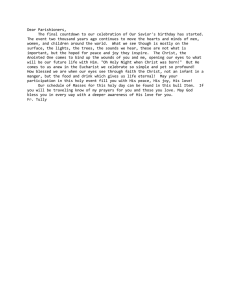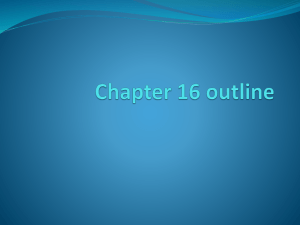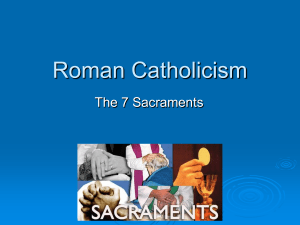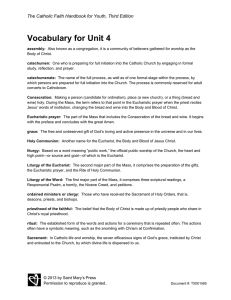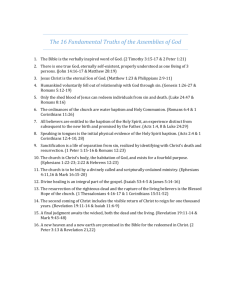Examine these documents about the Catholic Reformation to see which... DO” list. If they can, note the change that was...
advertisement
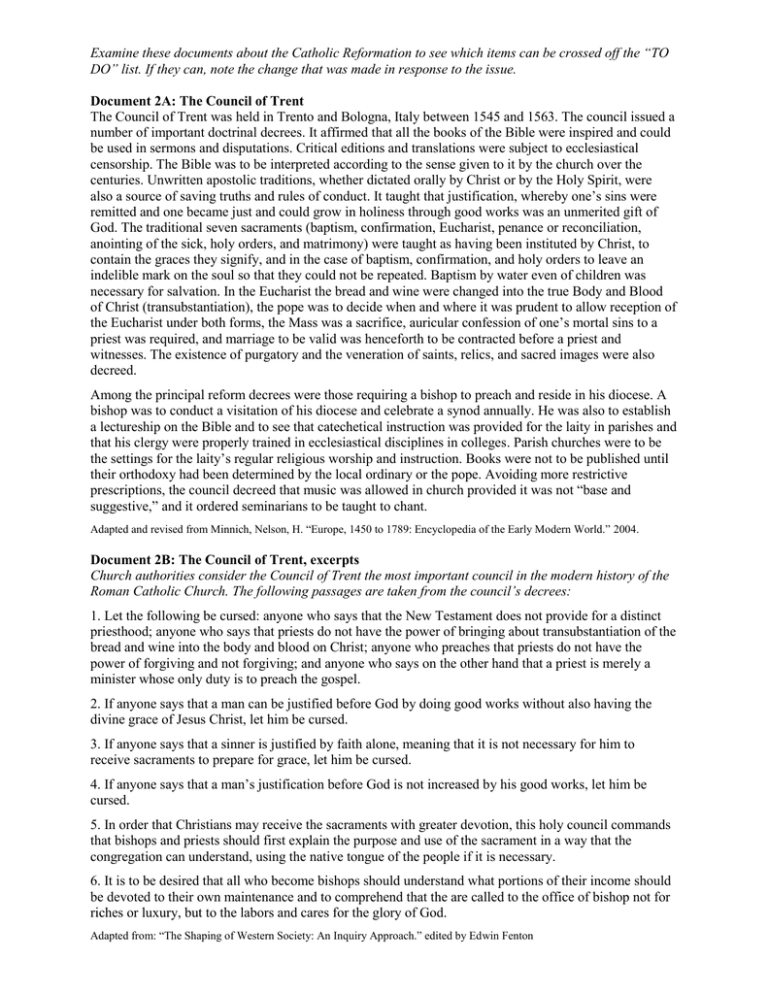
Examine these documents about the Catholic Reformation to see which items can be crossed off the “TO DO” list. If they can, note the change that was made in response to the issue. Document 2A: The Council of Trent The Council of Trent was held in Trento and Bologna, Italy between 1545 and 1563. The council issued a number of important doctrinal decrees. It affirmed that all the books of the Bible were inspired and could be used in sermons and disputations. Critical editions and translations were subject to ecclesiastical censorship. The Bible was to be interpreted according to the sense given to it by the church over the centuries. Unwritten apostolic traditions, whether dictated orally by Christ or by the Holy Spirit, were also a source of saving truths and rules of conduct. It taught that justification, whereby one’s sins were remitted and one became just and could grow in holiness through good works was an unmerited gift of God. The traditional seven sacraments (baptism, confirmation, Eucharist, penance or reconciliation, anointing of the sick, holy orders, and matrimony) were taught as having been instituted by Christ, to contain the graces they signify, and in the case of baptism, confirmation, and holy orders to leave an indelible mark on the soul so that they could not be repeated. Baptism by water even of children was necessary for salvation. In the Eucharist the bread and wine were changed into the true Body and Blood of Christ (transubstantiation), the pope was to decide when and where it was prudent to allow reception of the Eucharist under both forms, the Mass was a sacrifice, auricular confession of one’s mortal sins to a priest was required, and marriage to be valid was henceforth to be contracted before a priest and witnesses. The existence of purgatory and the veneration of saints, relics, and sacred images were also decreed. Among the principal reform decrees were those requiring a bishop to preach and reside in his diocese. A bishop was to conduct a visitation of his diocese and celebrate a synod annually. He was also to establish a lectureship on the Bible and to see that catechetical instruction was provided for the laity in parishes and that his clergy were properly trained in ecclesiastical disciplines in colleges. Parish churches were to be the settings for the laity’s regular religious worship and instruction. Books were not to be published until their orthodoxy had been determined by the local ordinary or the pope. Avoiding more restrictive prescriptions, the council decreed that music was allowed in church provided it was not “base and suggestive,” and it ordered seminarians to be taught to chant. Adapted and revised from Minnich, Nelson, H. “Europe, 1450 to 1789: Encyclopedia of the Early Modern World.” 2004. Document 2B: The Council of Trent, excerpts Church authorities consider the Council of Trent the most important council in the modern history of the Roman Catholic Church. The following passages are taken from the council’s decrees: 1. Let the following be cursed: anyone who says that the New Testament does not provide for a distinct priesthood; anyone who says that priests do not have the power of bringing about transubstantiation of the bread and wine into the body and blood on Christ; anyone who preaches that priests do not have the power of forgiving and not forgiving; and anyone who says on the other hand that a priest is merely a minister whose only duty is to preach the gospel. 2. If anyone says that a man can be justified before God by doing good works without also having the divine grace of Jesus Christ, let him be cursed. 3. If anyone says that a sinner is justified by faith alone, meaning that it is not necessary for him to receive sacraments to prepare for grace, let him be cursed. 4. If anyone says that a man’s justification before God is not increased by his good works, let him be cursed. 5. In order that Christians may receive the sacraments with greater devotion, this holy council commands that bishops and priests should first explain the purpose and use of the sacrament in a way that the congregation can understand, using the native tongue of the people if it is necessary. 6. It is to be desired that all who become bishops should understand what portions of their income should be devoted to their own maintenance and to comprehend that the are called to the office of bishop not for riches or luxury, but to the labors and cares for the glory of God. Adapted from: “The Shaping of Western Society: An Inquiry Approach.” edited by Edwin Fenton
